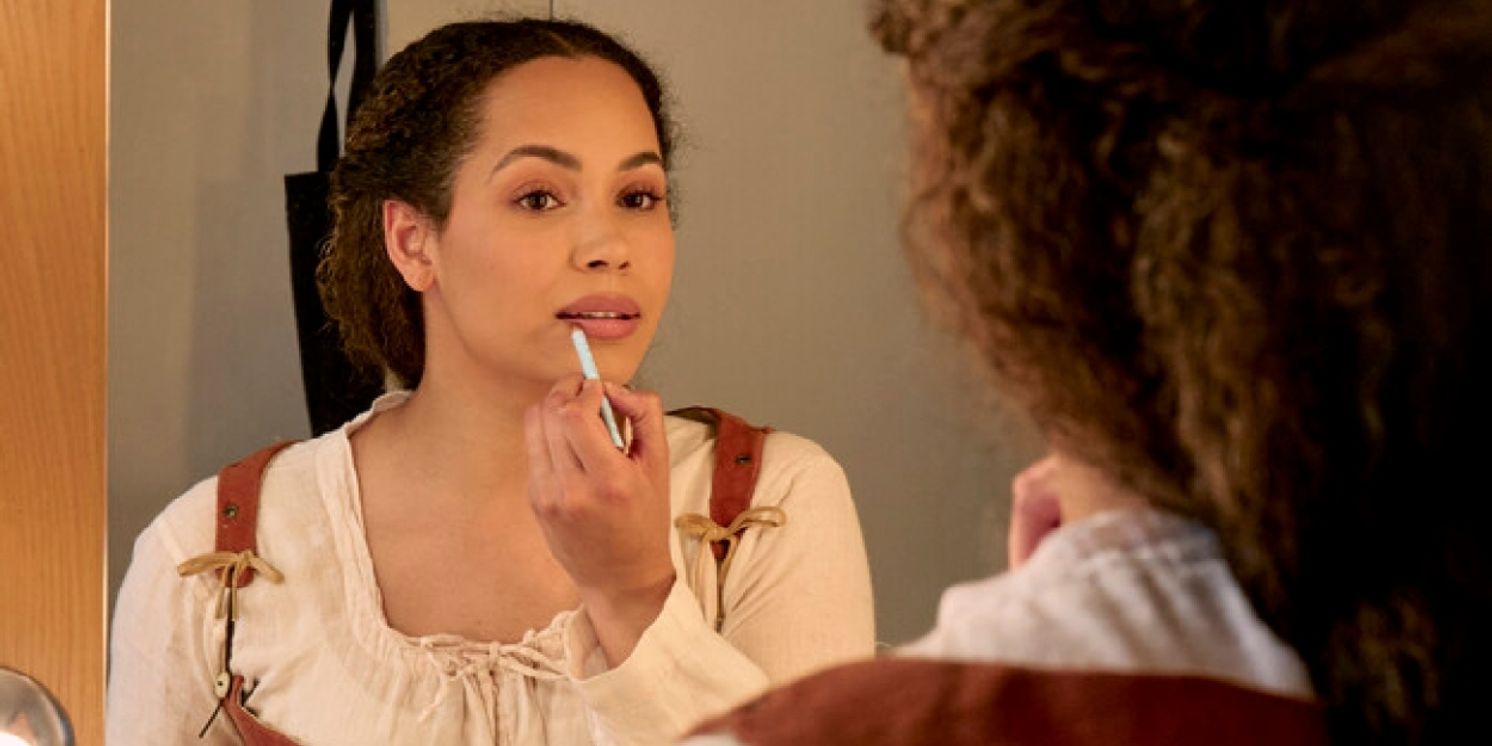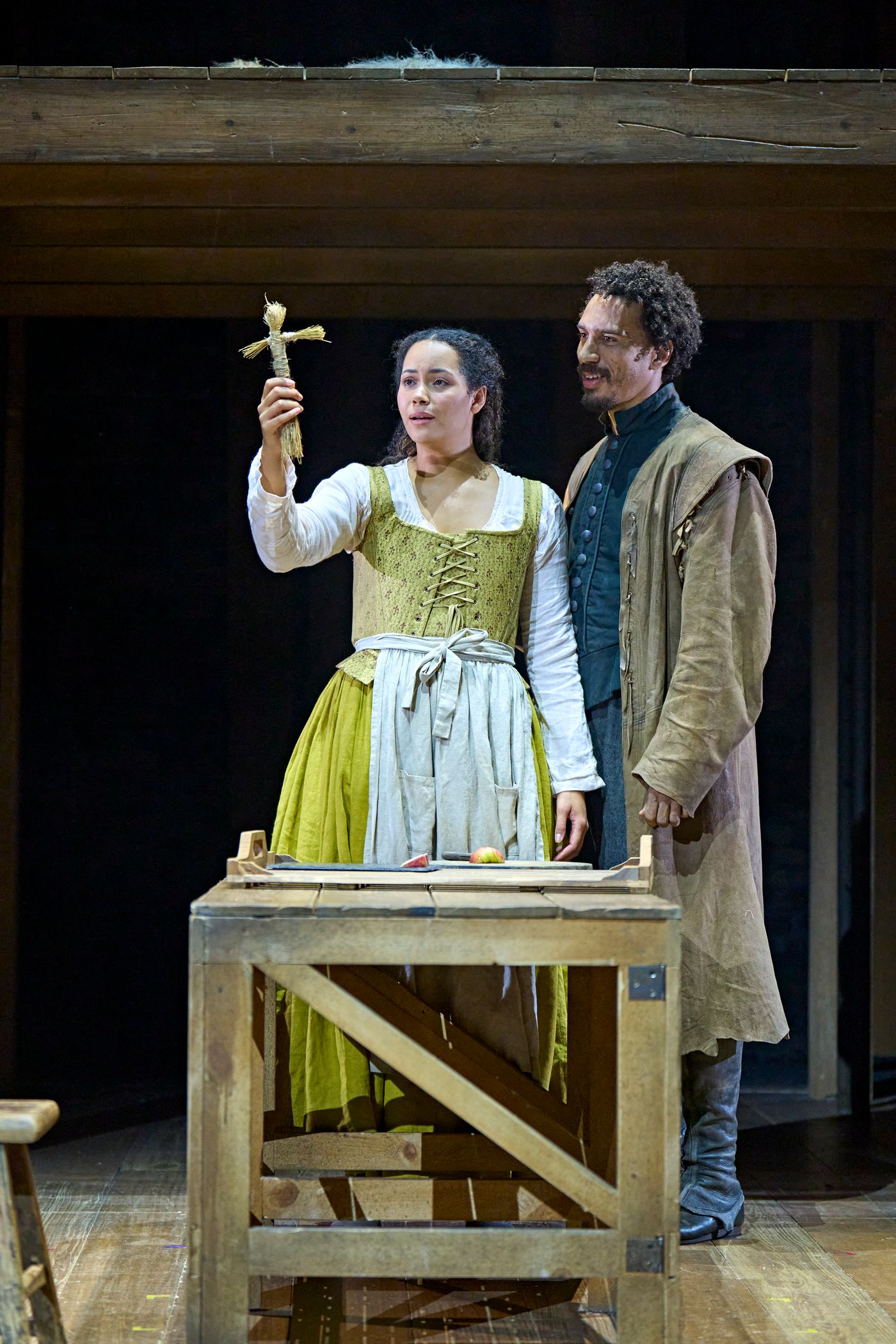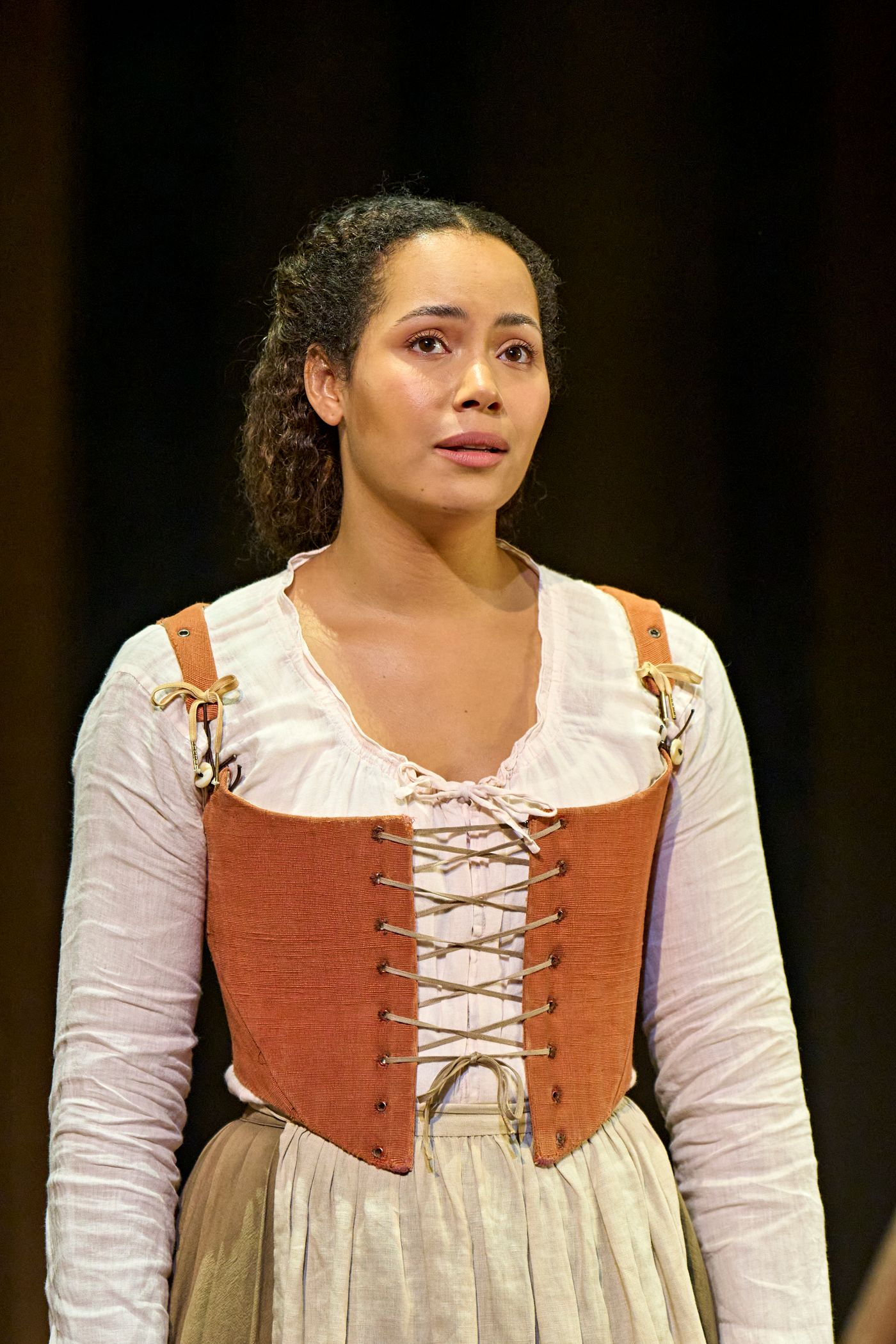Interview: 'I Hope We Can Help People to Not Feel Alone': Madeleine Mantock of HAMNET on playing Agnes Hathaway and the Beauty of Grief
'Agnes has this split energy, which is what makes her really interesting to play. '

After a sold-out run in Stratford-Upon-Avon, the Royal Shakespeare Company is bringing Hamnet to the West End. With a run at the Garrick Theatre, Hamnet tells the story of Agnes Hathaway, William Shakespeare, and their children. After dealing with a horrible loss, Agnes and William must deal with their grief in their own separate ways.
BroadwayWorld chatted with Madeleine Mantock, who plays Agnes Hathaway in Hamnet. We discussed the role Agnes plays within the show, how Mantock connects with the themes of the story, and even what makes this show so magical.
What made you want to be a part of Hamnet?
I think it has to be Lolita’s adaptation. I hadn't read the book before. I'd heard of it, and I'd seen the cover. I've got a friend who's really into her books, and I messaged her and said, “Have you read this book? I think I've seen it on your Bookstagram.” But it was really just getting the audition and the play in my inbox. I read it and was like, “Oh, gosh, this is one of those jobs that you never really get to do, because someone else will get it!” The elements that I loved in it, it felt so visceral, and I really connected with it. I thought it was really beautifully written. And just the whole journey of it, I knew it would be hard. Sometimes people say they don't want to do stuff unless it scares them. I'm fine with doing stuff that's not scary! But it was one of those things that was like, “Oh, that would be a really big challenge for me!” So I think that was it.
Have you read the novel?
Yeah. Because I could tell that I was quite attached, as I started to get called back, I didn't want to deepen my connection to it in case it went away. So I waited until I was cast, and then I read it over Christmas. And then we were starting in February, so I had a nice chunk of time to read the new scripts that we then got and also read the novel. It's an amazing, amazing book, a testament to how popular it is.
Can you tell us a bit about your character in Hamnet?
I play Agnes Hathaway, and essentially, she's William Shakespeare's wife, which is what she's been limited to in the past. But in our story, we get to delve a little bit more into who she is, what she does . . . She's a mother to three children, she is a daughter, she lost her mother when she was four. She's grown up with an evil stepmother, but she has a really amazing bond with her brother. And then meets William Shakespeare, and at least in our show, I really feel like it's a magical meeting of people and then a meeting of their families. And so you get to see her as a younger woman when she's living in that stifling, violent, abusive household. Her only friend at the time that she meets William is her kestrel. One of the beautiful things about Agnes is that she has a connection to everything that's up in the air, and that's shown through the kestrel, but she's also really grounded. She’s a herbalist and has a knowledge of everything that's earthy. So she has this split energy, which is what makes her really interesting to play.
And then in the second part of the play, we see her as a mother to these three children, a set of surprise twins that nobody knew were coming! [Laughs] And then a really bad, sad thing happens, and it changes the course of both of their lives. One of the things that I love about the play is that it explores the different ways that people experience grief. Agnes has a dark, deep, wallowing way that it affects her. And for William, he finds that it's better for him to leave, to go back to London and to express his grief through his work. In a way, I feel sad for Agnes in those moments, because she's stuck. She doesn't have a way to express that grief and she has to continue living. Life goes on and the same work needs to be done. There are other children remaining that need to be looked after. So it's a different experience for both of those characters.
What has it been like portraying such a beloved character from the novel?
I'm really enjoying it! I really, really am. Not immediately in the beginning, because like I said, I had such a strong connection to her and to the story that I was just excited. I felt really lucky and grateful to get to do it. And then as we went on, I went, “Oh, gosh, I've got to play this really quite magical person. And what if people come and see it and don't think I’m magical?” [Laughs] But there isn't much you can do about that. Some people think you're the most magical person you've ever seen, that you're magnificent, and some people don't, and that is life. I try not to worry too much about that. I just try to take each day or each show as a fresh slate, and I want to honour that character, Maggie's book and the latest adaptation. Just to honour the story and to try and tell it the best way that we can each time.
There are days when I go, “Oh, wow. The way we did that first scene was my favourite. If it could be like that every day . . .” And maybe that's because I come from more of a screen background where you'd go, “We'll use that take, and then for this bit, we'll use this take.” Whereas this is not like that. You're running lots of little races. I've had conversations with both Erica Whyman and Lolita, our writer, where they've been worried about whether I'm carrying the grief with me, or if I'm really sad myself, but I said, “No, I really see this as a challenge!” I feel like I'm on a train and I've got all these little pitstops of moments and beats and parts of the story that we've got to hit and tell. I'm just trying to make every stop. That's my goal. So if I can do that and ride the emotional wave of the story, then I feel accomplished. I don't feel saddened by it, even though it's a really sad story that we're telling in places.
What has it been like preparing for a stage role versus your usual on-screen roles?
I think this is true in both cases, but I do feel like they're very different disciplines. There is a certain amount of stamina that you have to build up, but there isn't really a way to do that other than doing it. So I don't know if that is necessarily a preparation thing. But one of the things I've really found that I'm enjoying about doing theatre is that we have this rehearsal time where we all get to be together and read the play and talk about it and try things and go, “Oh, I could do it like that!” It's just interesting how specific you can get, and I've got no idea if when an audience comes to watch, they really tune into those things. But also, what I found with audiences is that they see reflections of themselves or their own lives. So I think it's worth trying to get all of that detail. Because for some people, they'll go, “Oh, gosh, yeah, I got this, this, and this,” and then someone else might get all these things. So it's definitely worth it. And I enjoy it.
It reminds me of being at school where you have to really study the text, and I really loved English! I love words. Sometimes when you do screen work, people aren't as interested in doing that kind of excavation and discovering the text. They decided how they'd like to say it, and it's never going to change. Even if you give them something different, it will be the same. And that depends on what kind of actors you're working with. We're really lucky in this cast that we've got people who are really intuitive and responsive, and they're really listening. And I think that's because people can sense how beautiful the story is. So you want to be the best vessel that you can to really tell that story.

What do you hope audiences take away from Hamnet?
We definitely want it to be hopeful. Something very bad and sad happens, but amongst all of that, there's so much love. One of the things that I really love is how relationships develop. It's often between characters that you wouldn't really even think about. The relationship that develops between Agnes and Eliza is pretty quick to blossom, and I find that really beautiful. But also the relationship between Agnes and Mary, William's mother. In the beginning, she's so against everything that Agnes is, but by her joining their family, they're able to find more common ground than they thought there was. And I just think that's a really beautiful way to look at life. Lots of people are different, and we all have different thoughts and ways of doing things. And I really liked that we have that element in our show, that we don't all have to be carbon copies of each other. You can have your own way and you can still have respect and grow an appreciation for people.
And I hope that people will see the beauty and the magic that there is in the story. We went to visit our new theatre the other day. It's always a little bit daunting when you go in, because you're like, “Okay, this is going to be our new home. What's it going to be like? How's it gonna feel?” And I just think it's such a beautiful tradition, theatre in itself. I hope that people can just enjoy a night of entertainment, and maybe get to have a bit of a cathartic experience. A lot of times, people are dealing with stuff and you have to get on with life, so you bury it and you don't think about it. Our show is definitely one where if you want to come and sit in a dark room with a bunch of other people who might be feeling the same and have a little cry, then just don't forget to bring your tissues!
And finally, how would you describe Hamnet in one word?
I'm gonna say “magic.” For us as actors, we are bringing elements of ourselves to it, and it just feels like the purest way that a group of people can come together to try and tell and honour this story. But it goes beyond that. In Stratford, we had a group of women come to watch the show who became friends because they were bereaved mothers. And so yes, we're doing a theatre show, and there's the magic of that.
But there's also the magic of this beautiful story and what that does for people, which I think is why the book is so popular - it provides an emotional outlet that people need. So magic in lots of different ways. Literally physically, emotionally. Agnes is magic too! She's one of those people that I feel like is living a full life. And even though that means that there's a lot of pain and suffering in the midst of that, I think that that is a beautiful version of magic, too. I feel really grateful because there are people who will come to see the show and really identify with some of the things that she goes through. Hopefully, people will be like, “Oh, gosh, I remember falling in love. How wonderful is that? How magic was that?” But also for those people who have suffered loss. I hope that we can help people to not feel alone.
Hamnet runs at the Garrick Theatre until 17 February 2024.
Photo Credits: Manuel Harlan
Powered by
|
Videos



%2Cmadeleinemantock(agneshathaway).creditmanuelharlan.jpg?format=auto&width=1400)